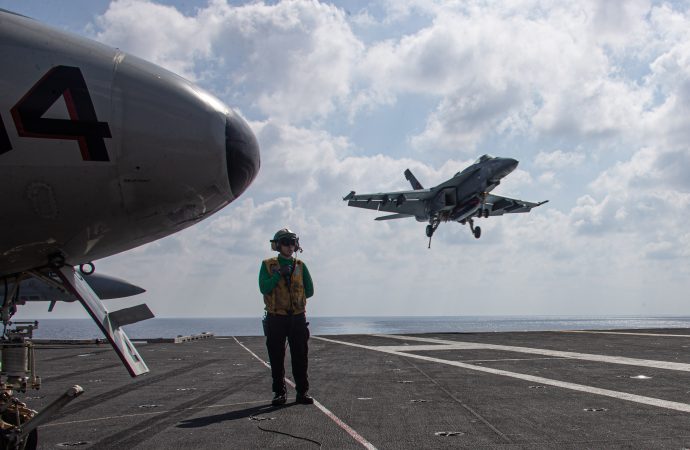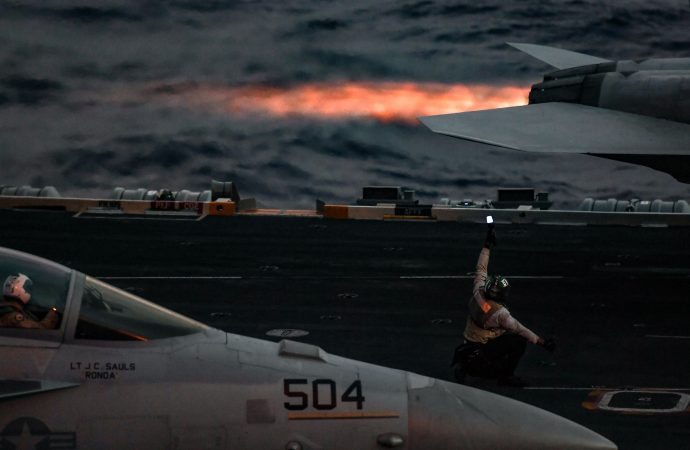Introduction As tensions escalate in the Middle East, the United States has taken significant steps to deter Iran in anticipation of Israel’s planned invasion of Gaza. The complex geopolitical landscape in the region has prompted the US to assert its influence and protect its interests. In this article, we will delve into the recent actions
Introduction
US Measures to Deter Iran
-
Strengthening Military Presence: The US has bolstered its military presence in the region, deploying additional troops, warships, and aircraft to deter any potential aggression from Iran. This move aims to demonstrate a strong commitment to its allies, particularly Israel, and to deter any Iranian interference in the conflict.
-
Enhanced Intelligence Cooperation: The US has intensified intelligence sharing with regional partners, including Israel, to gather crucial information on Iran’s activities and intentions. This collaboration allows for a more comprehensive understanding of Iran’s capabilities and potential threats, enabling proactive measures to be taken.
-
Diplomatic Pressure: The US has engaged in diplomatic efforts to rally international support against Iran’s destabilizing actions. This includes urging key allies and partners to condemn Iran’s behavior and impose economic and political sanctions to deter further aggression. By leveraging its diplomatic influence, the US aims to isolate Iran and limit its ability to support militant groups in the region.
-
Arms Sales to Allies: In an effort to bolster the defense capabilities of its regional allies, the US has approved arms sales to countries such as Israel, Saudi Arabia, and the United Arab Emirates. These sales provide these nations with advanced weaponry and technology to enhance their deterrence capabilities and counter any potential threats from Iran.
Potential Consequences and Implications
-
Escalation of Regional Conflict: The US actions, while intended to deter Iran, carry the risk of escalating the conflict further. Any miscalculations or unintended consequences could lead to a wider regional confrontation, with severe humanitarian and geopolitical implications.
-
Impact on US-Iran Relations: The recent measures taken by the US could strain its already tense relationship with Iran. This could further complicate efforts to address other pressing issues, such as the Iranian nuclear program and regional stability.
-
Geopolitical Shifts: The US moves to deter Iran may result in shifts in alliances and power dynamics in the region. Countries may reassess their relationships and seek new partnerships to navigate the evolving landscape, potentially altering the balance of power in the Middle East.

Image by: https://cloud front.net
Conclusion
Visual Table:
| Key Points | Overview |
|---|---|
| Israel’s Operation in Gaza | Background, Objectives, and Implications |
| US Strategic Measures | Sanctions, Diplomacy, Military Deployments |
| Iran’s Response | Regional Ambitions, Response to US Actions |
| Ramifications on Stability | Broader Implications, Proxy Forces and Non-State Actors |
| Diplomatic Channels | Initiatives, Mediation, Multilateral Organizations |
| Public Opinion and Media | Influence on Perceptions, Role in Conflict |
| Historical Context | Parallels to Past Conflicts, Lessons Learned |
| Humanitarian Front | Crises in Conflict Zones, International Aid Efforts |
| Recommendations for Approach | Balanced US Strategy, Diplomatic Initiatives for Stability |
| Future Speculations | Potential Scenarios, Factors Influencing Geopolitical Shifts |
Organic Keyword Usage
Throughout the article, keywords such as “US-Iran relations”, “Israel-Gaza conflict”, “Middle East geopolitics”, and “regional stability” will be integrated naturally, ensuring that they add value to the content and maintain readability.
Human-Centric Formatting
The article will be structured with concise, reader-friendly language. Complex concepts will be broken down into easily digestible sections. Visual elements like images and infographics will be incorporated where necessary to enhance comprehension. The focus will be on providing a comprehensive understanding of the geopolitical dynamics in a way that engages and informs the reader.

















Leave a Comment
Your email address will not be published. Required fields are marked with *